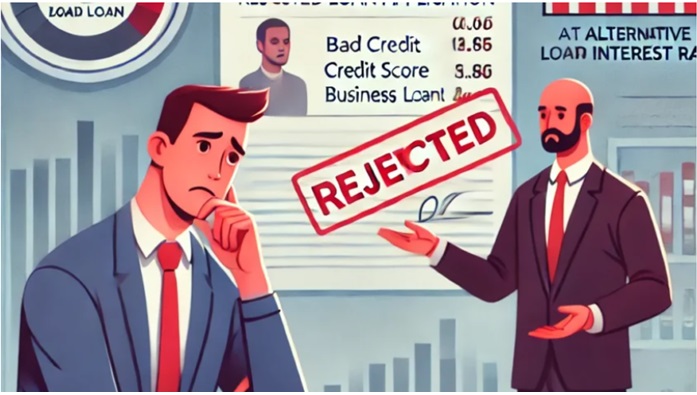Getting a mortgage with bad credit is challenging but not impossible. Many lenders in Canada recognize that credit scores don’t tell the whole story and will consider applications from those with less-than-perfect credit. It is possible to get approved for a mortgage with bad credit by understanding the process, working with mortgage brokers, and exploring alternative lenders.
Borrowers with bad credit can improve their chances by saving for a larger down payment and being transparent about their financial situation. Mortgage brokers can help navigate the options available and negotiate better terms. Understanding these key factors is crucial for anyone looking to secure a home loan despite credit challenges.
Understanding Mortgages With Bad Credit
Mortgages for those with bad credit come with unique challenges but also specific options. Approval depends heavily on credit score criteria, the impact of those scores on loan terms, and the kinds of mortgages accessible to applicants with credit issues.
What Constitutes Bad Credit for Mortgages
Bad credit typically refers to a credit score below the conventional lending threshold, often under 620. Scores in this range indicate a higher risk for lenders due to prior late payments, defaults, or high debt levels.
Lenders consider other factors such as recent bankruptcies or collections accounts when assessing risk. However, the exact definition of bad credit can vary by lender and mortgage type.
Applicants with bad credit may face stricter scrutiny on income stability and debt-to-income ratios. Having some equity built up in a home or a larger down payment may help offset lower credit scores.
How Credit Scores Affect Mortgage Approval
Credit scores impact mortgage approval, interest rates, and loan conditions. Lower scores generally lead to higher interest rates and may require additional documentation or guarantees.
A low credit score signals a higher chance of default to lenders. This increases the risk premium built into the mortgage terms. Some lenders may impose stricter repayment requirements or limit the loan-to-value (LTV) ratio.
Borrowers with poor credit often need to demonstrate compensating factors like stable employment, a sizable down payment, or reduced existing debt. Improving credit scores before applying can also enhance approval chances and loan terms.
Types of Mortgages Available for Bad Credit
Certain mortgage types cater to borrowers with bad credit. These include:
- FHA Loans: Government-backed loans with lower credit score minimums, often down to 580.
- Subprime Mortgages: Higher interest rates designed for higher-risk borrowers.
- Alternative or Non-QM Loans: Allow more flexible credit and income verification.
- Portfolio Loans: Held by lenders in-house, allowing customized approval standards.
Borrowers may also find lenders specializing in credit-challenged applicants. Larger down payments or co-signers can increase access to traditional mortgages despite poor credit.
Steps to Secure a Mortgage With Bad Credit
Securing a mortgage with bad credit requires targeted actions that improve financial standing and increase approval chances. Key elements include improving credit, organizing paperwork, selecting lenders experienced with credit challenges, and negotiating mortgage terms.
Improving Your Credit Score Before Applying
Improving credit score before applying can lower interest rates and expand lender options. Individuals should review their credit reports for errors or outdated information and dispute inaccuracies promptly.
Paying down existing debts, especially high-interest credit cards, helps reduce credit utilization—a critical factor in credit scoring. Consistent, on-time payments on all bills signal reliability to lenders.
Avoid opening new credit accounts or making large purchases before applying. Establishing a stable financial pattern over several months builds trust and improves creditworthiness.
Gathering Required Documentation
Thorough documentation expedites the mortgage process and demonstrates financial transparency. Essential documents typically include proof of income (pay stubs or tax returns for self-employed borrowers), bank statements, and identification.
Applicants should prepare a detailed list of current debts, assets, and monthly expenses. Lenders may also request credit explanations or letters confirming timely payments on recent accounts.
Organizing these documents in advance reduces delays and supports lender confidence. Digital copies or physical folders that categorize paperwork can improve efficiency during application.
Comparing Lenders Specializing in Bad Credit
Lenders vary in willingness to work with applicants with poor credit. Researching institutions that specialize in bad credit mortgages, such as B lenders, private lenders, or credit unions, can uncover more flexible options.
These lenders often have different qualifying criteria and may require larger down payments or higher interest rates. Comparing offers from multiple lenders helps identify the combination of fees, terms, and approval likelihood.
Utilizing brokers with expertise in bad credit mortgage financing can streamline this process. They connect borrowers to lenders who understand credit challenges and may secure better deals.
Negotiating Terms and Rates
Negotiating mortgage conditions can secure more favorable rates and reduce overall costs despite credit issues. Borrowers should prepare by understanding their credit status, market rates, and what concessions they might request.
Offering a larger down payment, seeking fixed interest rates, or proposing shorter loan terms can improve lender confidence and loan affordability. Transparency about credit challenges paired with a solid repayment plan increases negotiation leverage.
Maintaining a professional and fact-based communication tone during negotiation promotes trust. Borrowers should also request a clear breakdown of all fees and terms before agreement.






